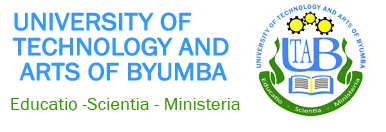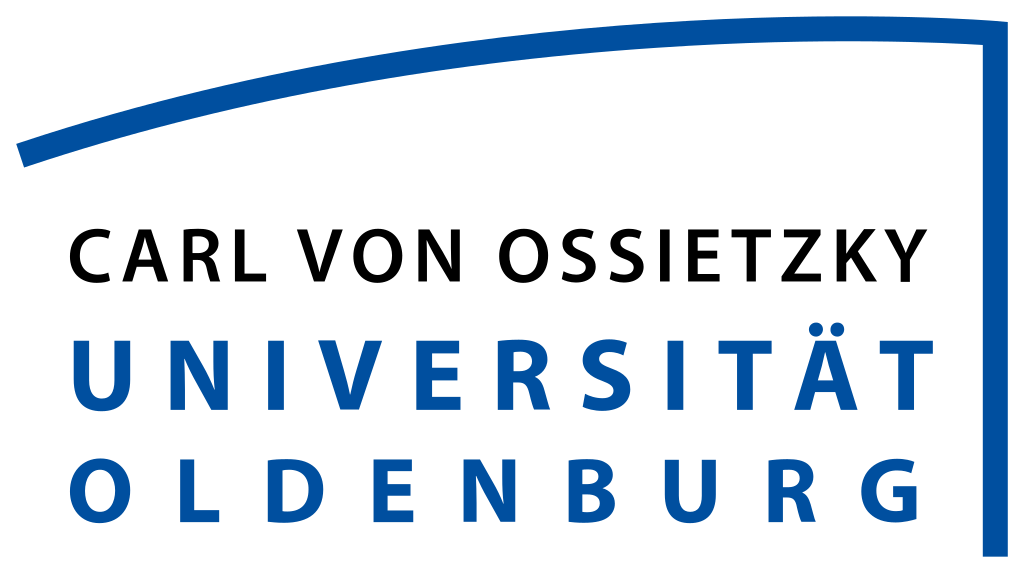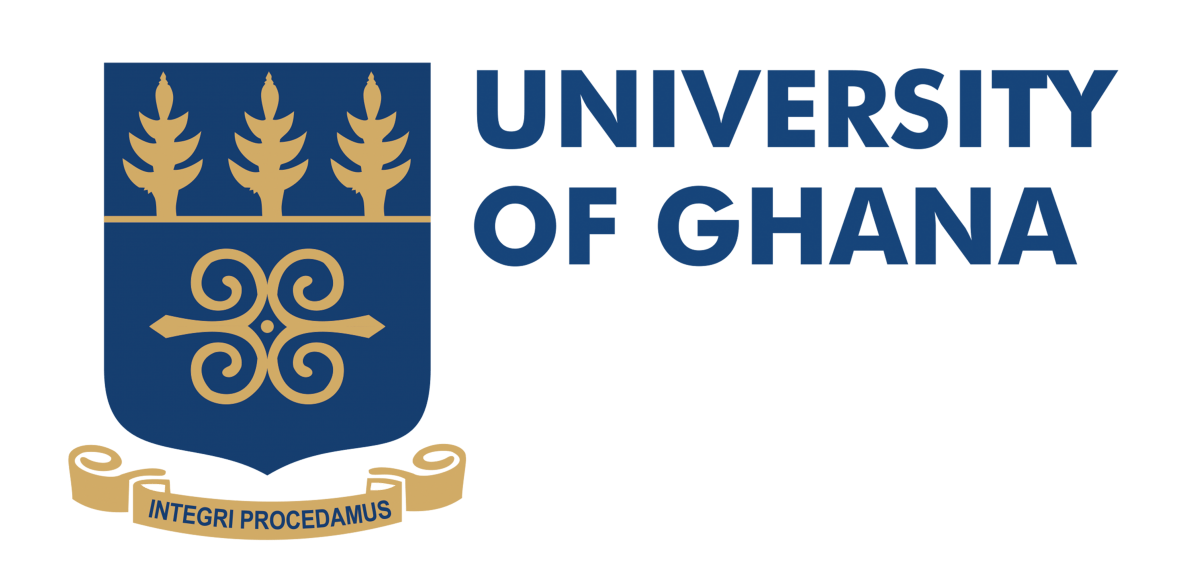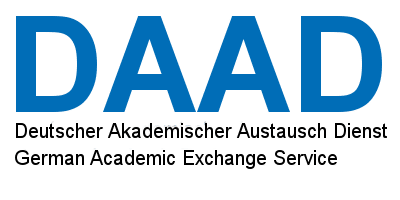Welcome to
4. Network for Labour-Market oriented Education in Waste and Water Management for the SubSaharan Region (NEWW) Back to Project Portolio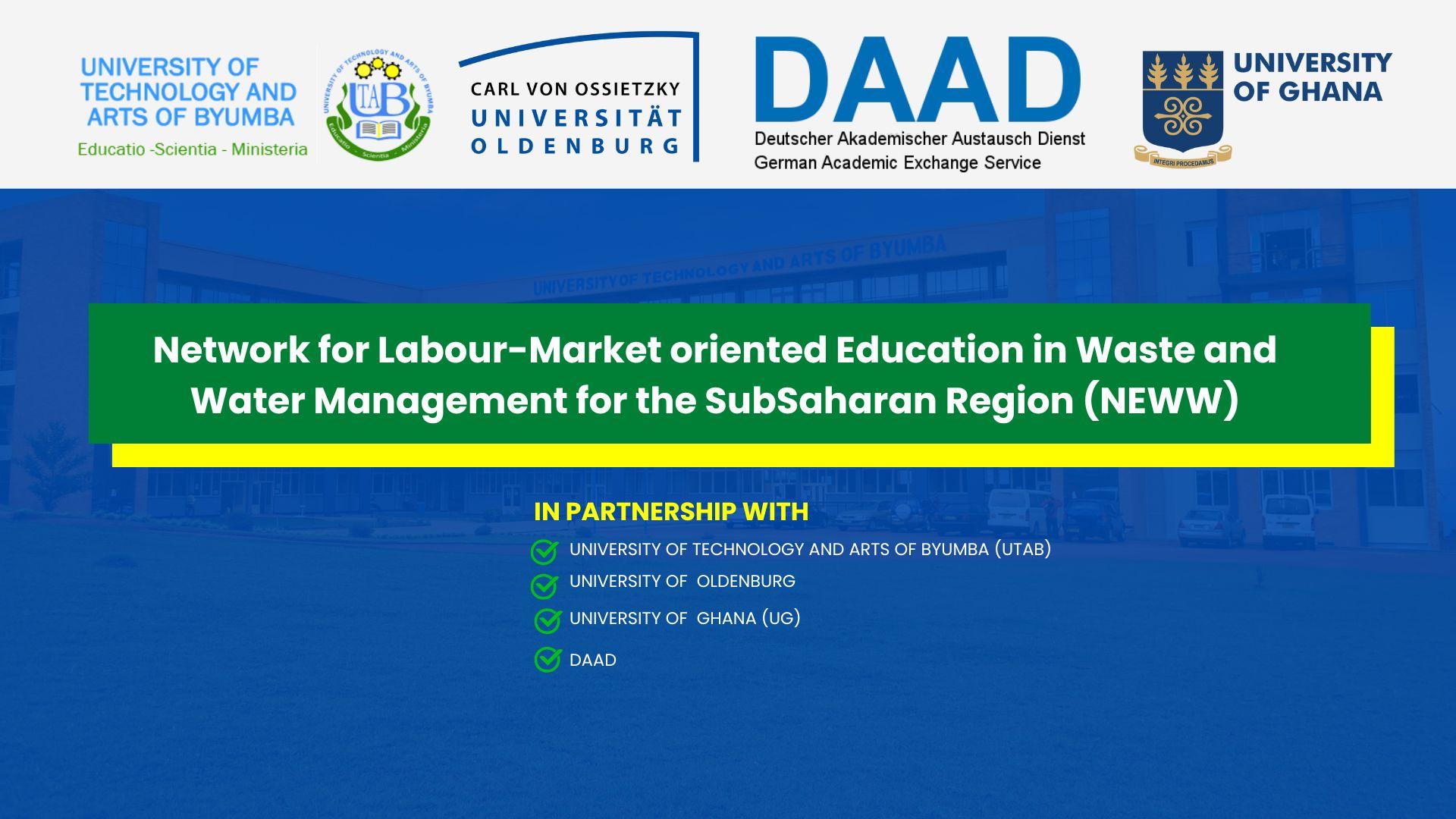
Network for Labour-Market oriented Education in Waste and Water Management for the SubSaharan Region (NEWW)
The project Network for Labour-Market oriented Education in Waste and Water Management (NEWW) is a project built upon the local labour market conditions in two key fields, development strategies, as well as innovative research. The project network consists of the partners University of Oldenburg, including its Centre of Environmental and Sustainability Research COAST, as well as the Future Lab Water at the Center for Digital Innovations (ZDIN) in Germany, the University of Ghana (UG) and the University of Arts and
Technology Byumba (UTAB).
The main goal of NEWW is to strengthen the labour market in the waste and water management sectors in Ghana and Rwanda. To achieve this goal, NEWW is built on three pillars: Teaching, Research and Transfer. The foundations of these pillars are existing degree programmes as well as local university-industry networks and the international university network
First Pillar
————-
Teaching
- To address current topics in the areas of circular economy and green economy, a lecture series module is to be developed and introduced as a joint event at all three universities. Furthermore, practice oriented focus modules are to be developed and introduced for the partner universities in cooperation with the business partners in order to strengthen the professional education in the respective field. Furthermore, it is proposed that the selection and announcement of thesis topics be targeted towards those with practical relevance. These topics shall be subject to supervision through collaboration with esteemed business partners, thereby fostering a strengthened relationship between the academic institution and the industrial sector.
Outcomes
- OC1: UG, UTAB and UOL offer an inter-university, credit-bearing lecture series module on the circular economy that will be integrated into degree programmes.
- OC2: UG and UTAB each offer a university specific, credit-bearing thematic lecture module focusing on the local labour market demands in the field of waste and water management.
- OC5: UG and UTAB offer practice-related thesis topics in cooperation with local business partners, covering locally relevant research topics and strengthening employability.
Second Pillar
————-
Research
- With regard to research endeavours, the objective is to establish a closer association between the university and its industry partners. This shall be achieved through the provision of thesis topics that possess practical significance and the conduct of research projects that are relevant and practical in nature, with a particular focus on the areas of waste management and water management. This will further be augmented by an increase in the number of publication outputs in these areas.
- Outcomes
- OC3: UG, UTAB and UOL conduct relevant research projects (papers, presentations, collaborations) that are cutting-edge in the field of circular economy and correspond to the local context (waste and water), including a gender impact assessment.
- OC5: UG, UTAB and UOL offer practice-related thesis topics in cooperation with local business partners, covering locally relevant research topics and strengthening employability.
Third Pillar
————-
Transfer
- To strengthen the cooperation with business partners, several approaches are pursued in this project. In addition to the involvement of practical partners in thesis topics and the lecture series module, career promoting events are to be held once a year at both partner universities.
- Outcomes
- OC4: As accompanying services related to the labour market, UG and UTAB establish an annual career fair. The career fair aims to attract especially companies of interest for the students of the considered degree programmes.
- OC5: UG and UTAB offer practice-related thesis topics in cooperation with local business partners, covering locally relevant research topics and strengthening employability.
Foundation
————-
University-Industry Network and Existing Degree Programmes
- Existing local networks and existing degree programs form the basis for the three pillars. To strengthen and expand these, cooperation between all partners is to be intensified. The development of new modules leads to a rethinking of existing modules at UOL. Furthermore, important problems in the partner countries will be addressed and thus contribute to strengthening the labour market in the long run.
Outcomes: - OC6: By implementing inter-institutional teaching, research and transfer activities with university and business partners in developing countries, UOL has deepened its development cooperation.
- OC7: The network supports the Water Management and the Waste Sectors in Ghana and Rwanda in the long-term goal of economic prosperity in conjunction with environmental sustainability, social justice, and the creation of decent jobs (”just transition”).
Main Activities
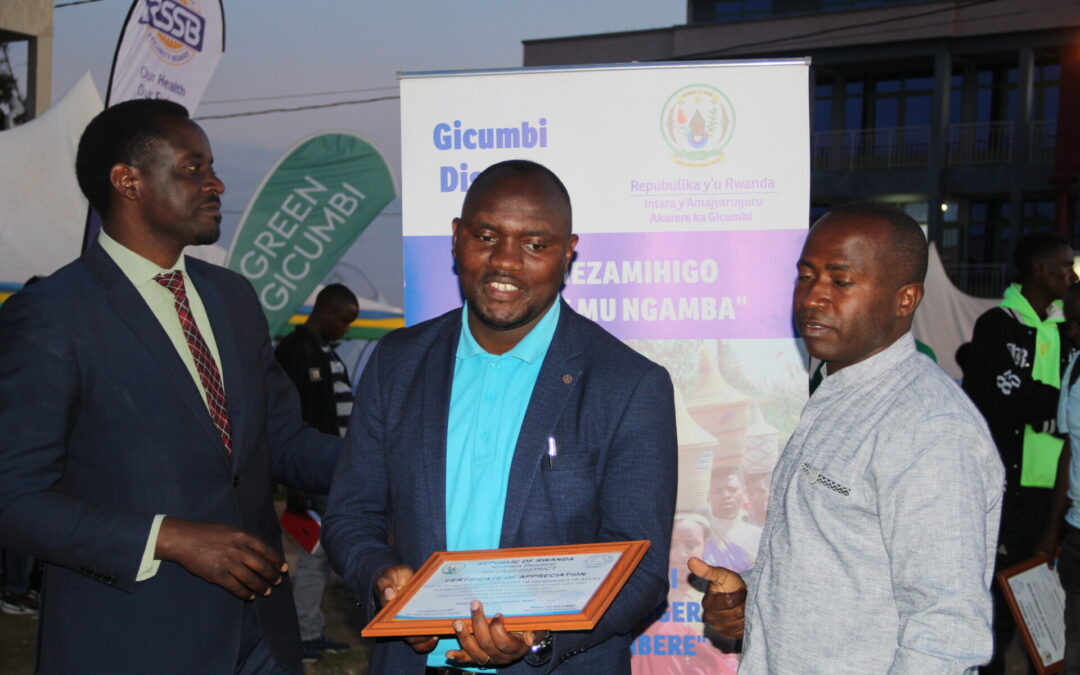
Participating in Different Exhibitions Rises The University Visibility
University of Technology and Arts of BYUMBA (UTAB) has participated in JADF Open Day of two districts. The aim of these Open days is to exhibit what different district partners do daily for the development of those districts. From 11th to 14th June, UTAB has actively...

